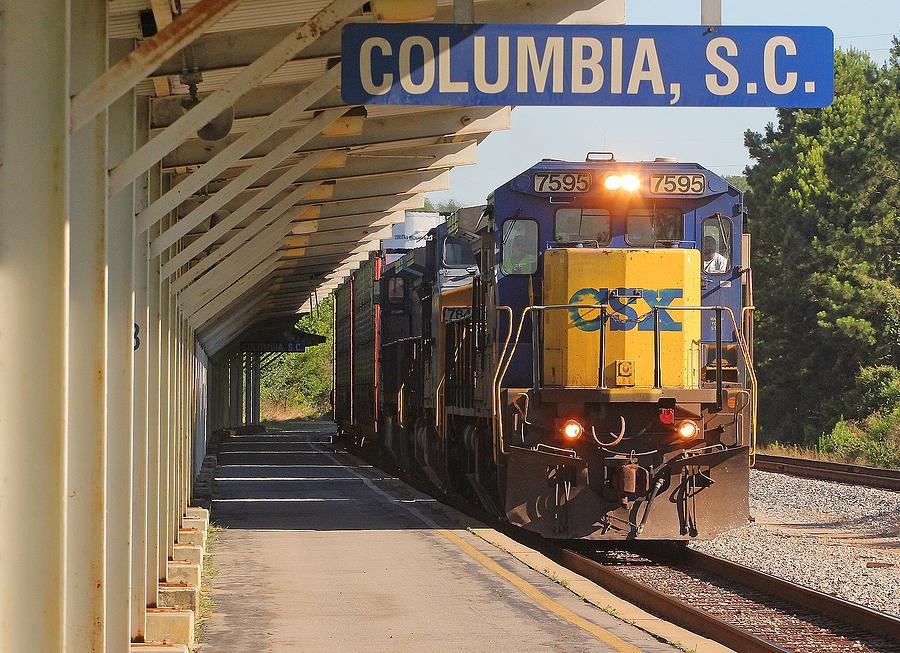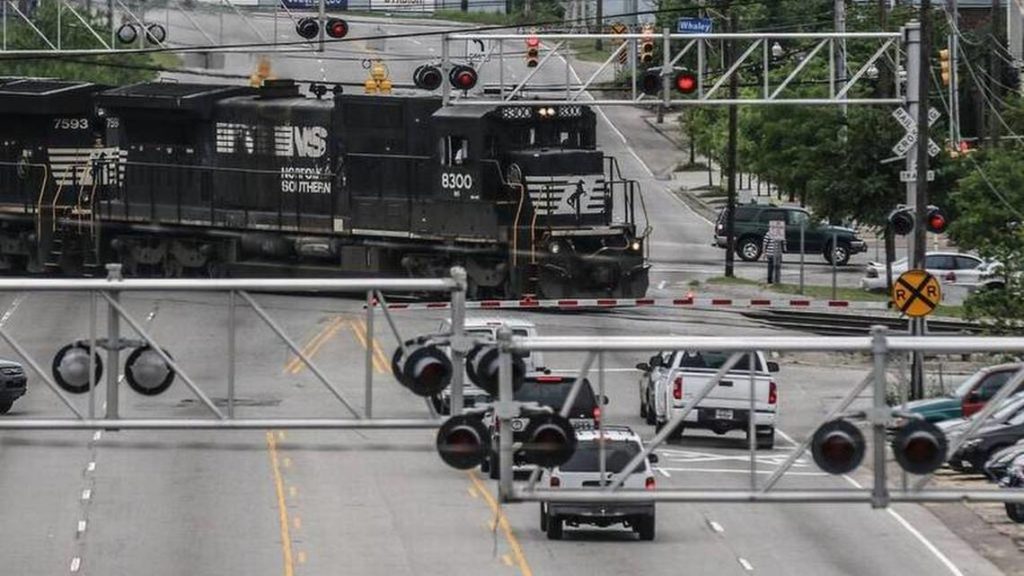You might say it’s a Columbia tradition or a rite of passage, but not in a fun way: Sitting in traffic behind an impossibly long, sometimes completely unmoving train.
Whether at lunchtime or quittin’ time or time for an important meeting, many Columbia drivers have felt the frustration of long train delays downtown.
Isn’t there a law against those long blockages?
Columbia has a long-standing ordinance, adopted in 1979, banning trains from stopping for more than five minutes on a track that blocks street traffic. That law applies only to stopped trains, not moving trains or trains that are switching cars.
The thing is, those laws have no teeth.
Columbia police rarely if ever enforce the city’s law on stoppage time, said Sgt. Robert Uhall of the Columbia Police Department’s traffic unit. In his more than a decade with the department, he can’t recall any citations, he said.
It’s not even clear what Columbia’s set penalty for violating the law is.
The lack of enforcement, Uhall said, is largely because trains can be stopped for any number of legitimate reasons, such as changing cars, relieving crews or mechanical issues.
And there’s no way for police to know why a train is stopped and, then, possibly issue a citation to the train operator without actually worsening the delay, Uhall said.
“They’re going to have to hold up even longer for us to make contact with them, and typically we’re going to have to walk a mile” down the tracks to get to the operator, Uhall said.
There is no federal regulation on how long trains can be stopped on a track. And while states and local governments may have their own laws about it, they’re often overridden by federal regulations the trains must follow, according to Federal Railroad Administration spokesperson Desiree French.
For example, in order to clear a crossing to comply with a state law, a train might have to change speeds or the length of the trains, French said in an email to The State newspaper. But speed and train length are covered by federal law, she said. Likewise, a railroad might not be able to complete required tests on air brakes — or relieve train crews as required by federal law — at some locations if doing so would violate a state requirement on blocking a crossing.
Between the CSX and Norfolk Southern lines, some 20 to 30 trains come through downtown Columbia any given day.
For complaints about extended delays because of stopped trains, you can call Norfolk Southern at 800-946-4744 or contact CSX through an online complaint system at www.csx.com/tellcsx. CSX has an emergency phone number, 1-800-232-0144, but prefers that calls to that number pertain to an emergency such as a car or object stopped on a track, a malfunctioning signal or a train accident.
“Our goal is to keep freight moving safely and efficiently,” CSX spokesperson Rob Doolittle said. “While there are times when mechanical or operational issues could result in blocked crossings, these are situations we work hard to avoid. We understand that waiting for a train may be inconvenient, and we appreciate the public’s patience as we work to deliver critical shipments to customers who need them.”
Earlier this year, Columbia officials made plans to update an old study looking at possibilities for relocating or consolidating train tracks on Assembly Street, where train delays at certain times of day can cause a domino effect of traffic back-ups.
The city also recently assembled a committee to consider establishing “quiet zones” to keep trains from sounding their horns at every street crossing.
While blocked tracks can be an aggravation for motorists, generally, train operators want to “keep those trains moving as much as we do,” Uhall said.
“They make their money moving commerce, so they more they move, the more they can make,” Uhall said.





Speak Your Mind